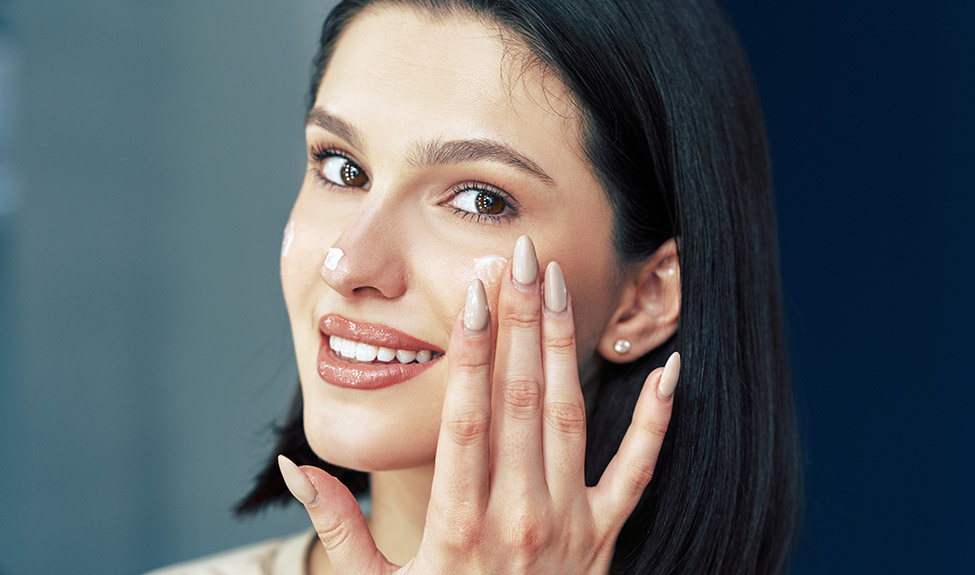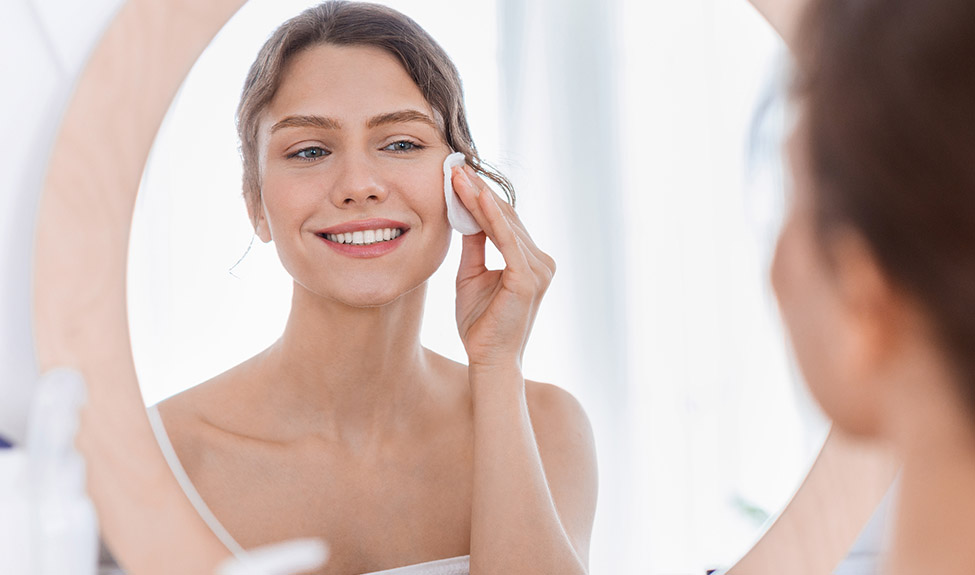Hundreds of different kinds of bacteria can be found on the skin, some of which contribute to common issues like acne, cellulitis, and folliculitis. But not all facial bacteria are bad.
The human body is home to trillions of microorganisms. In fact, they outnumber human cells by as much as 10 to 1. Because these microorganisms are so small, however, they’re easy to forget about until they cause a problem. What your clients may not realize is that these bacteria play an important role in skin health, particularly the bacteria that make up the skin microbiome.
The term microbiome refers to the collection of microorganisms in the body. The skin microbiome refers to the collection of bacteria, fungi, and viruses that reside specifically in and on the skin.
Why is Balance So Important?
The concept of the human microbiome is nothing new, but your clients may be most familiar with it in terms of the gut microbiome. The microorganisms that reside in the digestive tract play an important role in overall health – imbalances between harmful and beneficial microbes can contribute to a wide array of health problems like irritable bowel syndrome (IBS), obesity, and type 2 diabetes.
While the gut microbiome is significant, the skin is the body’s largest organ, and it plays host to millions of microorganisms. Beneficial bacteria in and on the skin help protect against harmful microbes to keep the skin’s microbiome in balance.
Imbalances in the skin’s microbiome can lead to inflammation and contribute to skin infections and inflammatory skin conditions like psoriasis, eczema, rosacea, and acne. It may also compromise the skin’s healing ability, leading to slow-healing wounds and an increased risk for scarring. Microbial imbalance in the skin may also play a role in conditions like vitiligo and dandruff.
Client Education Tips

It generally isn’t necessary or appropriate to give every client a lesson in microbiology, but education is a key component in any successful skincare treatment. Particularly for clients struggling with inflammatory skin conditions or chronic acne, it may be beneficial to provide a quick summary of the role the skin’s microbiome plays in maintaining skin health and how to protect it.
First and foremost, it may be helpful to educate these clients about the factors that can impact the skin’s microbiome.
Genetics, environment, and exposure to UV light all play a role, but age and lifestyle choices contribute significantly as well. Puberty is when changes to the skin’s microbiome tend to emerge. The hormones released during puberty increase the production of sebum in the skin which naturally attracts bacteria, contributing to issues like acne.
Once the client understands a little bit more about what the skin microbiome is and why it’s important, you can provide education regarding how to support it.
Fortunately, the skin’s microbiome remains relatively stable over time. The makeup of every person’s microbiome is unique, however, and it’s unclear whether changes in the gut microbiome affect the skin microbiome and vice versa.
As a skincare professional, you have the opportunity to teach your clients about products and habits that can damage the skin’s microbiome as well as ways to protect it.
Methods for Protecting the Skin’s Microbiome
The goal of any skincare routine is to keep the skin healthy. In relation to the skin’s microbiome, that means protecting its biodiversity. Killing off too many of one microorganism can allow another to proliferate in its stead, and that is a recipe for skin problems.
Here are some simple tips to help your clients protect their skin microbiome:
- Choose cleansers appropriate for the client’s skin type. Twice-daily cleansing is essential for removing makeup, impurities, and surface oils from the skin which can create a breeding ground for harmful microorganisms.
- Exfoliate gently to avoid compromising the skin’s protective barrier. Not only does the skin barrier help keep moisture in, but it helps keep pathogens out.
- Avoid over-using antibacterial products on the skin. Keeping your hands clean is important, but antibacterial facial products (like those designed to treat acne) can kill off good bacteria as well as the bad.
- Keep the skin moisturized. A healthy hydration ritual boosts the skin’s moisture barrier and may help with inflammatory skin conditions potentially related to microbial imbalance like eczema and psoriasis.
- Reexamine unhealthy lifestyle habits like smoking. It’s no secret that smoking is bad for you, but it is particularly bad for the skin – it can cause inflammation and alter the skin’s microbiome.
- Address medical conditions with your doctor and seek treatment. Poorly managed health issues like diabetes and inflammatory bowel disease can contribute to skin problems.
Research on the skin’s microbiome is ongoing and there is still a lot we don’t know. For now, encourage your clients to treat their skin gently and to pay attention to how it reacts to certain products or lifestyle choices.
Regular spa facials are instrumental in protecting and maintaining skin health. In addition to providing access to professional-grade products, spa facials create an opportunity for clients to check in on their skin health and learn how to better protect it at home.

